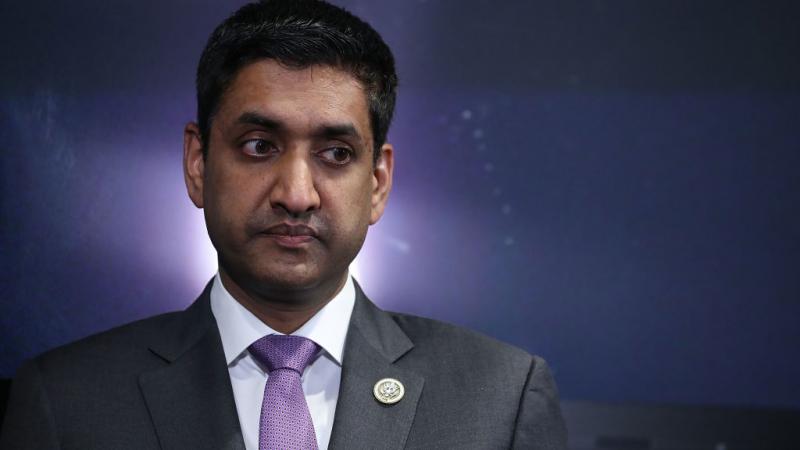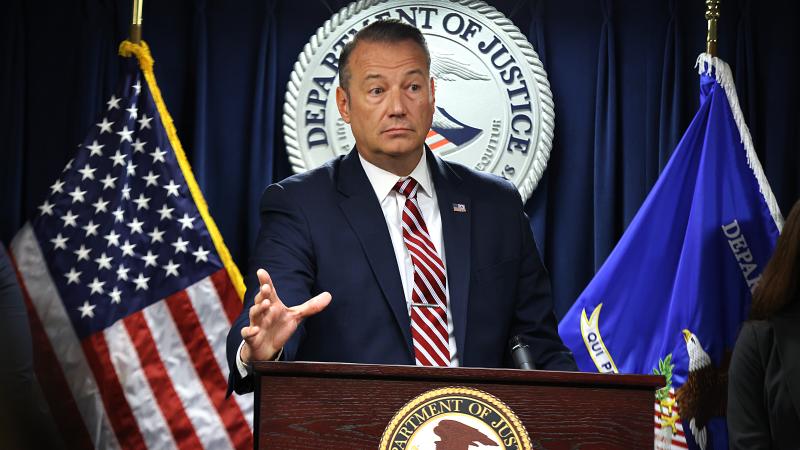Big Publishing's anti-conservative bias opens door for independents, self-published authors
"Blacklisting has gone from being the publishing industry's dirty little secret to being its biggest boast," said Tom Spence, president and publisher of conservative-leaning Regnery Publishing.
Book publishers' bias against conservatives has risen sharply since the November election, but this creates openings for independent publishers and self-published authors to flourish, industry insiders tell Just the News.
On Sunday, The New York Times published an article about Kate Hartson, the former editorial director of the conservative Center Street imprint at Hachette Book Group, reporting that Hartson "told associates that she believed she'd been fired for her politics."
Hartson shepherded the publishing of blockbuster books like "Triggered" by Donald Trump Jr. and Corey Lewandowski's "Trump: America First: The President Succeeds Against All Odds," along with books by other Trump supporters including Fox News host Jeanine Pirro and former House Speaker Newt Gingrich.
Under a headline blaring "Big Publishing Pushes Out Trump's Last Fan," the Times article claimed Hartson's departure signaled that the "Big Five publishing companies in New York, and even their dedicated conservative imprints, had become squeamish about the genre known as MAGA books."
A spokeswoman for Hachette did not reply to a request for comment about Hartson's departure from the company.
A conservative author who requested anonymity to comment publicly on the matter due to its sensitivity said he thinks Hachette's decision with Hartson reflects a desire to move away from celebrity-driven conservative books to more serious-minded journalistic endeavors. He believes the company will continue to publish well-reported, right-leaning books.
However, Adam Bellow, founder of the conservative Broadside imprint at HarperCollins and now executive editor for Bombardier imprint at Post Hill Press, told Just the News he believes Hachette management was bullied by more junior staffers and other corporate pressures to bend to political correctness.
There is an ongoing intergenerational struggle within the publishing industry, according to Bellow, between "woke," "leftist" younger employees and older, more classically "liberal" executives. The younger staffers are products of a modern liberal arts education, "which is to say, a certain kind of social justice curriculum," Bellow said, and "they come into these companies, and they treat them like an extension of their campus activism."
In January, a forthcoming book by Sen. Josh Hawley (R-Mo.) called "The Tyranny of Big Tech" was dropped by publisher Simon & Schuster. The move came after Hawley led efforts by congressional Republicans to challenge select swing state Electoral College certifications last month (just as some Democrats had challenged election results in 2001, 2005, and 2017).
Simon & Schuster's decision provoked backlash among conservatives, however, and Hawley quickly found another taker, Regnery Publishing, a conservative imprint of Salem Media Group. Tom Spence, president and publisher of Regnery Publishing, told "Just the News AM" television program that the firm was "delighted to pick up Senator Hawley."
"It's not often that you get a book, that you acquire a book, that another publishing house has done a first-rate publicity campaign for," Spence said. "Simon & Schuster made it, I think, a much more popular book than it would have been even otherwise."
Still, Spence said, "We are disturbed by a trend in publishing which I think can only be called blacklisting."
"Blacklisting has gone from being the publishing industry's dirty little secret to being its biggest boast," Spence said. "Taking Senator Hawley's book is our way of taking a stand against that."
The Los Angeles Times first reported in mid-January that more than 250 authors, agents, professors and "others in the American literary community" signed a letter objecting to any future book deals with former President Trump or members of the Trump administration. The number of signatories on the letter had risen to nearly 600 as of Monday evening.
Calling the letter a "chilling example" and "as clear a statement of blacklisting as you could come up with," Spence said: "I've been listening. There have not been any condemnations of that."
Noting that Regnery published Trump's "Time to Get Tough: Make America Great Again!" in 2015, Spence said his company "would certainly consider carefully a proposal" for a memoir or any other book by Trump.
"We're not writing him — or pretty much anybody else — off," Spence said.
Lynn Chu, principal of Writers' Reps literary agency, told Just the News this week she's seen a steady decline in openness to conservative ideas among leaders at large publishing houses in recent years. Chu's firm has represented an extensive range of conservative luminaries, including Irving Kristol, Thomas Sowell, Bob Dole and Jack Kemp. Chu snagged a $4.5 million book advance for Newt Gingrich in December 1994.
"The '90s was a more moderate time," Chu said. "I didn't think so at the time, but compared to now ... I mean, it's insane. Censorship is not going to stand, either, nor is fascist manipulation of these firms.”
Chu said the publishing industry left's self-defeating commitment to "block off half of the buying public" is a potential boon for independent houses and self-published authors. Trump, Jr., for example, self-published his most recent book, "Liberal Privilege: Joe Biden and the Democrats' Defense of the Indefensible," in September, and it shot to the top of The New York Times' bestseller list.
"If you're a very small author, don't give away your copyright," Chu said. "It's absurd."
Eventually, Chu foresees, market forces are bound to prevail over ideological posturing in the publishing world.
"Everybody wants to publish that which is going to sell, and usually that's not a matter of conservative versus liberal," Chu said. "It's a matter of good versus bad."














